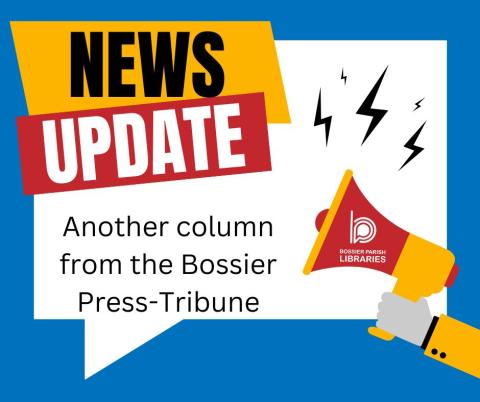
Bossier Parish Man Still Missing from Korean War
Seventy three years ago this month, President Harry Truman was taking a break from the stress of life in the White House by relaxing at his home in Independence, Missouri. The peace and quiet he enjoyed would not last. Word came on June 24th (June 25th in Korea) that North Korean troops were invading South Korea. Truman rushed back to Washington and committed U.S. forces as part of a United Nations effort to defend the South. The Korean War had begun. Approximately 36,500 U.S. service members would lose their lives in the brutal conflict. One member from Bossier Parish is still among the missing.
Captain David H. Grisham was a pilot and meteorologist. The 1938 Benton High School graduate first served his country in World War II, flying some 30 combat missions. According to the American Air Museum in Britain, it was during one such flight, with Grisham as co-pilot, that his plane – a B-24 Liberator – was repeatedly attacked by enemy aircraft while returning from a mission over Frankfurt, Germany. The plane lost all four of its superchargers, thus slowing its speed. Protective cloud cover was scarce. Taking evasive action, the Liberator descended to 75 feet. Enemy fighters fell back. Although damaged, the B-24 was able to reach a Royal Air Force station near Kent in England and make a wheels-up landing. This would not be Grisham’s last encounter with danger.
In Korea, weather played a key role in the planning and execution of combat operations, but forecasting the weather could be difficult. Grisham was up to the challenge. As part of the U.S. Air Force’s 20th Weather Squadron, he served as staff weather officer for the 18th Fighter Bomber Group and often flew reconnaissance missions, gathering data vital to troop movements. It was on his 46th recon flight that something went wrong. The Defense POW/MIA Accounting Agency details what happened. Grisham, as number two pilot in a flight of two, departed Ashiya Air Base in Japan in the early morning hours of September 3, 1950, flying a single-seat F-51 Mustang. Grisham and the lead pilot agreed to rendezvous over Pusan, Korea if they became separated. Shortly after takeoff, they had to climb through heavy overcast. The lead pilot exited the clouds, but did not see Grisham’s plane. He tried reaching Grisham by radio with no success. Grisham never arrived at the rendezvous point. Efforts by the Emergency Rescue Squadron failed to find any trace of him. Grisham was missing in action, one-month shy of his 30th birthday. Though the weather had been bad, the operations officer at the time of the flight states in a letter published in the Bossier Banner newspaper in November 1950, “We were ordered to proceed because the ground forces were in dire need of close support.”
Grisham was presumed dead on December 31, 1953, five months after the war ended with the signing of an armistice. His remains were never recovered. His name is inscribed, along with the names of all those who lost their lives fighting to defend South Korea, on the Wall of Remembrance at the Korean War Veterans Memorial in Washington, D.C. He is also listed on the Courts of the Missing at the National Memorial Cemetery of the Pacific in Hawaii and is memorialized with a plaque at Hill Crest Cemetery in Haughton.
If you have any letters, photos or other information relating to residents of Bossier Parish who’ve served in the military, the History Center may be interested in adding the material to its research collection. Call or visit us to learn more. We are open M-Th 9-8, Fri 9-6, and Sat 9-5. Our phone number is (318) 746-7717 and our email is history-center@bossierlibrary.org. We can also be found online at https://www.facebook.com/BPLHistoryCenter/
Images:
Image 1: Captain David H. Grisham, Defense POW/MIA Accounting Agency
Image 2: Grisham's B-24 Liberator, B-24 Best Web
Image 3: Memorial plaque at Hill Crest Cemetery in Haughton, photo by Sandra Clarkston
Article by: Kevin Flowers